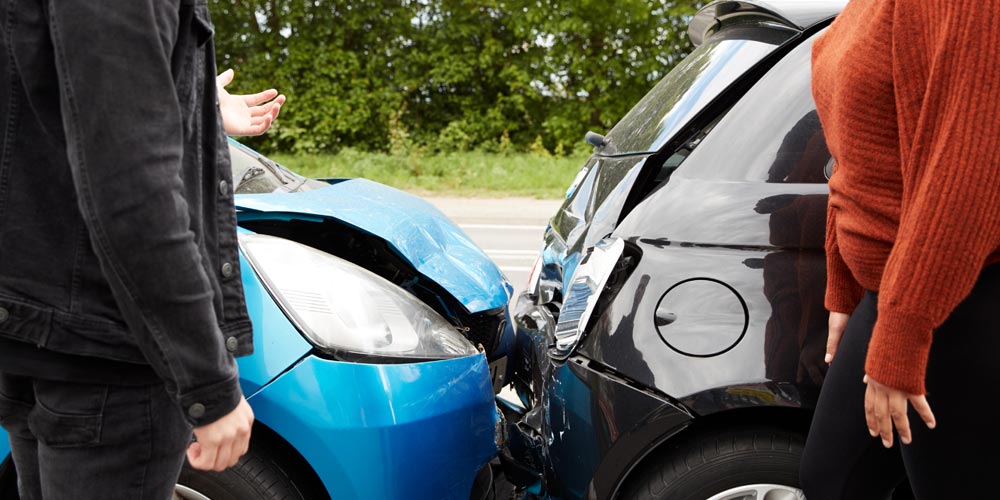What Should You Do If You Have A Car Accident?

It’s always an unfortunate event when you’re involved in an accident, and the majority of the time you cannot plan them. From a knock in the car park to bumps in the high street, there are things that every driver needs to know in order to take the right steps following an accident.
Knowing what to do next can be a worry, but there’s no need to panic – the steps you need to action after an accident are simple. Here’s a quick check list supplied by the RAC of things you should do in the event of an accident:
1. As soon as you’ve been involved in an accident, stop your car. It is illegal to drive away regardless of the severity of the collision.
2. Switch your engine off.
3. Always turn your hazard lights on. If you don’t know where it is, look for the button on your console that have two red triangles.
4. Check everyone involved in the accident for any injuries – make a note if everyone is okay.
5. If someone is injured or hurt, dial 999 immediately to call an ambulance. If the road is blocked, call the police.
6. Remove all passenger and pets from your vehicle, unless their injuries prevent it. If you can remove them, take them to a safe area.
7. Always exchange details with all parties involved in the accident – this includes your name, address and details about your car and insurance.
8. If you talk to the other parties involved, so not apologise or admit fault. This statement could be used against you and ultimately invalidate your claim.
What Should I Do At The Scene Of An Accident?
There are ways of avoiding a car accident but once it happens, it’s important to know what to do. Firstly, it’s crucial that both vehicles must stop at the scene of an accident (according to section 170 of the Road Traffic Act 1988). You must stop if you cause damage to a person, any property or animal regardless of the severity of the collision or who is to blame. If you fail to stop at the scene of the accident, you can be punished with a maximum sentence of six months in prison, as well a fine.
If you’re able to still drive your vehicle, find a safe place to stop (preferable in a layby) before switching off your engine and turning your hazard lights on. Once you’ve moved to a safe space, ensure all passengers and pets are removed from the vehicle, unless they are injured and you cannot remove them. If they are injured, keep them inside the vehicle and call 999 immediately.
If you’re on the motorway, make sure to follow the same steps, but pull over on to the hard shoulder if possible. You and your passengers should stand well away from the motorway, preferably behind the crash barrier, and wait for any recovery or emergency services to arrive.
What Details Should I Give Out To The Other Party Involved?
Legally, there are certain details you need to give out at the scene of an accident. If it’s not possible to give it at the scene, give them to the police within 24 hours of the incident. You need to share the following details:
1. Your name and address of everyone involved. You’re required by law to do this if anything has been damaged or if anyone has been injured.
2. Your insurance details, including who you’re insured with and your policy number.
3. Your certificate of insurance – only if anyone has been injured and someone at the scene has reasonable grounds to see it
4. Your contact details
5. Your driving licence number
It’s also worth noting that it’s very important to get their details as well, this is because it’s possible that at the time of the accident you aren’t aware of any injuries you may have suffered. Also, include a basic description next to their details to make it easier to remember later on who was driving the car.
One thing to do at the scene of the accident is to not play the blame game and start arguing with the drivers involved. Please remain calm. If they start arguing with you to try and take responsibility for the accident, maintain your composure and never admit it’s your fault – it could be used against you later.
How Shall I Deal With My Insurer?
You must contact your insurance provider as soon as possible after the accident, preferably on the same day, even if you’re not intending to make a claim. Failure to do so within the set time period set by your policy may invalidate your cover. Calling from the scene of the accident may even be more useful – if you’re too upset by the accident you can ask a police officer to give your insurance company a call to give a more accurate description of the incident that took place.
If you do call your insurer, make sure to give as much information as possible, including the name, address and insurance details of everyone involved in the accident. Outline your interpretation of the incident as clearly as possible. If you have details of any witnesses, pass them on to your insurer as quickly as possible. This will help with your claim.
How Do I Make A Claim?
An agent at your insurance provider will be able to walk you through how to file your claim after an accident. Your insurer may have the option to start the claims process via an app or on their website. Just be aware that you might lose your no claims bonus if the insurer is unable to recover the money from the other driver’s insurance. This will usually happen if you’re at fault or you were involved in an accident with an uninsured driver.
If you have a third-party insurance policy you will be unable to claim against your own insurance policy for damage to your own vehicle. If you are not liable for the accident you will have to claim back the cost of repair to your vehicle and uninsured losses from the other driver. However, if you are liable, you will have to pay for the entire cost of repairing your vehicle and you will not be entitled to claim uninsured losses.
If you’ve received a letter or claim form from the third-party or their insurance company shortly after the accident, send it on to your own insurer as soon as possible.

